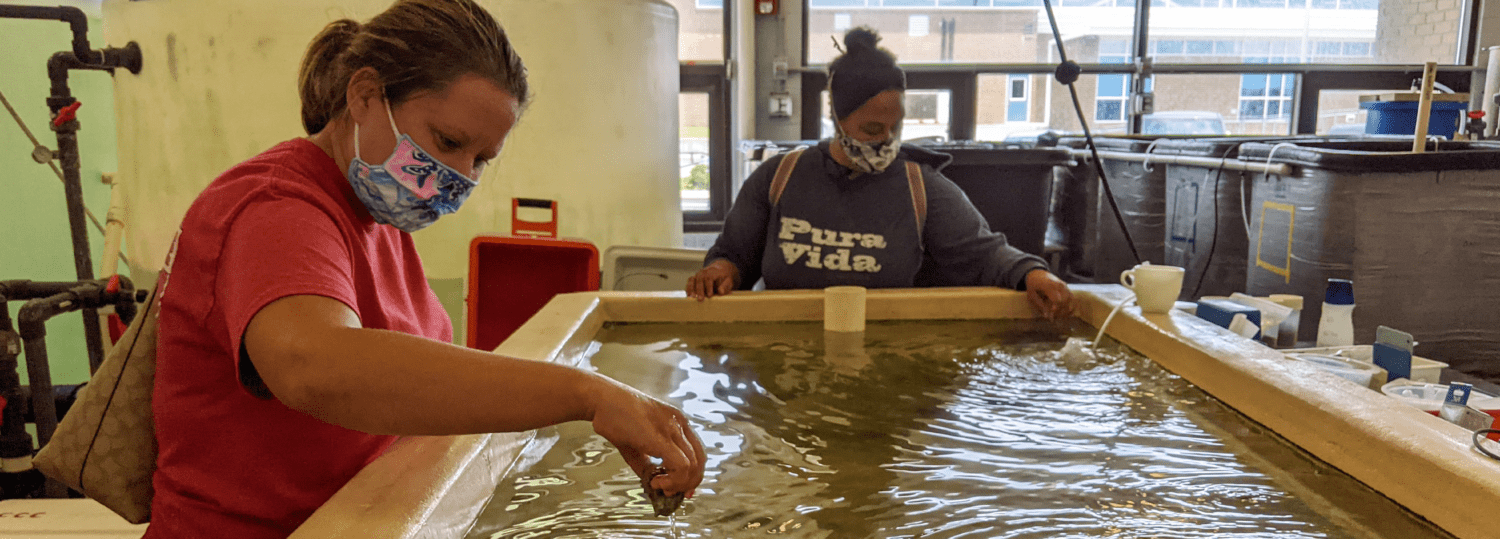DURHAM, N.C.⸺ A cohort of educators from Durham Public Schools (DPS) have completed a cross-curricular professional development series on food and the environment across North Carolina. Sessions were delivered in-person and online over a six-month period, and were made possible by a grant from the Merck Foundation, and a partnership between the Kenan Fellows Program for Teacher Leadership at NC State, the EPA, and DPS.
A total of 25 educators were selected for the blended institute and among them included a range of grade-level expertise from elementary to high school, as well as, content areas such as science, ESL, and environmental education. The workshops were designed and facilitated by Kenan Fellows Program alumni Margaret Borden, Kimberly Perry-Sanderlin, Emily Ericson, and Kathleen Anne Janes. Supporting them in the planning and delivery of sessions were Lauren Bamford and Kelly Witter of the EPA, and DPS central staff Linda Tugarian and Willow Alston-Socha, who is also a Kenan Fellows Program alumna.
The program provides educators with a statewide perspective of environmental and agricultural issues while examining and deepening their understanding of these same issues in Durham. Sessions addressed timely topics such as food deserts and environmental justice, and ways to develop eco-solutions for these issues in urban and rural communities.
“Experiential learning is essential for educators to make connections and develop meaningful learning opportunities for students. The educators who participated in this cohort are leaving with an enriched arsenal of resources that will impact their teaching for years to come,” said Perry-Sanderlin.
Virtual sessions featured an overview of the historical connections with food in Durham, and the agricultural industry in Western North Carolina. Hands-on sessions included a visit to the 30-acre Hub Farm, where the educators explored environmental resources for outdoor education including classroom-ready K-12 lesson plans, and a field trip to Carteret County where they learned about sustainable aquaculture from oyster farmer Ryan Bethea and David Cereno, the aquaculture department chair of Carteret Community College, as well as coastal farming practices from Shawn Banks, an extension director and horticulture agent.
Rachel Bisesi of the NC Coastal Federation and Kenan Fellows alumna Erin Strohschein led an activity on water quality and 2021-22 Kenan Fellow LeAnn Nixon discussed her fellowship with the Chowan County Farm Bureau and NC Farm Bureau on peanut farming in Eastern North Carolina.
The educators are working on ways to transfer their new knowledge back to students. Discussions around environmental issues, and affordable access to healthy food are especially important in a community such as Durham, where nearly 20% of children under the age of 18 are food insecure, and nearly 32% of children enrolled in public schools receive free and reduced lunch, according to the Food Bank of Central and Eastern North Carolina.
“When students can learn about a topic and see its direct implications within their own neighborhoods and towns, they are more likely to see its relevance and become more engaged in the learning. In Durham County, we have urban and rural areas to consider when it comes to food deserts and environmental justice. Students should leave our schools equipped with information, as to how, these issues can look different within the same county,” said Madi Evans, a chemistry teacher at Jordan High School, who participated in the Durham EPA Community Cohort.
